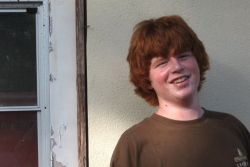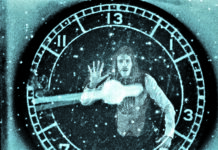It’s very frustrating not to be able to remember something, especially when it’s right on the edge of my memory.
However, I imagine it must be much more frustrating to remember everything one would read, see, hear and feel and not to be able to express any of those thoughts.
This is the plight of many people with autism.
The misconception in autism is that it seems the autistic person is not paying attention or comprehending.
This often leads to autistic people being spoken to in a manner below their intelligence. People will say anything in front of an autistic person or do things in front of the them believing the they will not comprehend.
At a medical conference, I heard a speaker tell the story of a high school age autistic boy who finally broke through with communication by pointing to letters.
When he could finally communicate in sentences they asked him how long he had been able to read. His answer? Since he was . He would read anything his family would leave lying around the house.
Dr. Temple Grandin, a noted autistic who is an author, speaker and cited expert in many publications says, “It’s like Google pictures. One look at the page and the image is imprinted on my brain for life.”
This is known as eidetic memory or photographic memory in most people. However, for an autistic person it appears to be even more dramatic.
Dr. Grandin went on to get a Ph. D. in animal science.
Carly Fleishmann was diagnosed with severe autism and an oral motor condition that prevented her from speaking. Doctors predicted that she would never intellectually develop beyond the abilities of a small child.
Although she made some progress after years of intensive behavioral and communication therapy, Carly remained largely unreachable. Then, at the age of ten, she had a breakthrough.
She eventually co-authored “Carly’s Voice” with her father, a book about her life with autism.
Fleishmann describes looking at a person straight on and her brain would take thousands of photos like a digital camera. And like a digital camera, she would get overloaded and would have to turn away.
Some believe Einstein was autistic. He couldn’t cross the street by himself and needed help tying his shoes, but his mind was brilliant in other aspects.
I have a dear friend who teaches special education for kindergarten through second grade students. Most of her kids have mild to severe autism.
One of her first grade students is highly functional yet still needs the special supervision. This little guy knows three languages already and is teaching himself mandarin Chinese. He’s in first grade.
An autistic person is like a sponge, they soak up everything around them. Their output is limited depending on the severity of their autism, similar to a printer having problems.
Sometimes when a printer messes up, it prints out a lot of gobbledy gook. No matter how much information is sent to the printer, it may receive the information, yet not be able to output correctly.
Even the most severely autistic person is capable of input. Finding the avenue of output can be very challenging, yet it’s a challenge worth pursuing.
Every person is capable of reaching a potential. Sadly, most autistic people are treated as if they are delayed and they aren’t encouraged to live up to their potential.
Many will respond when treated appropriately for their age and will be encouraged when someone believes in their potential.
So remember, future encounters with an autistic person may tempt one to treat them as limited. However, one may be speaking to the next doctor of animal science or an author or a brilliant mind like Einstein.














